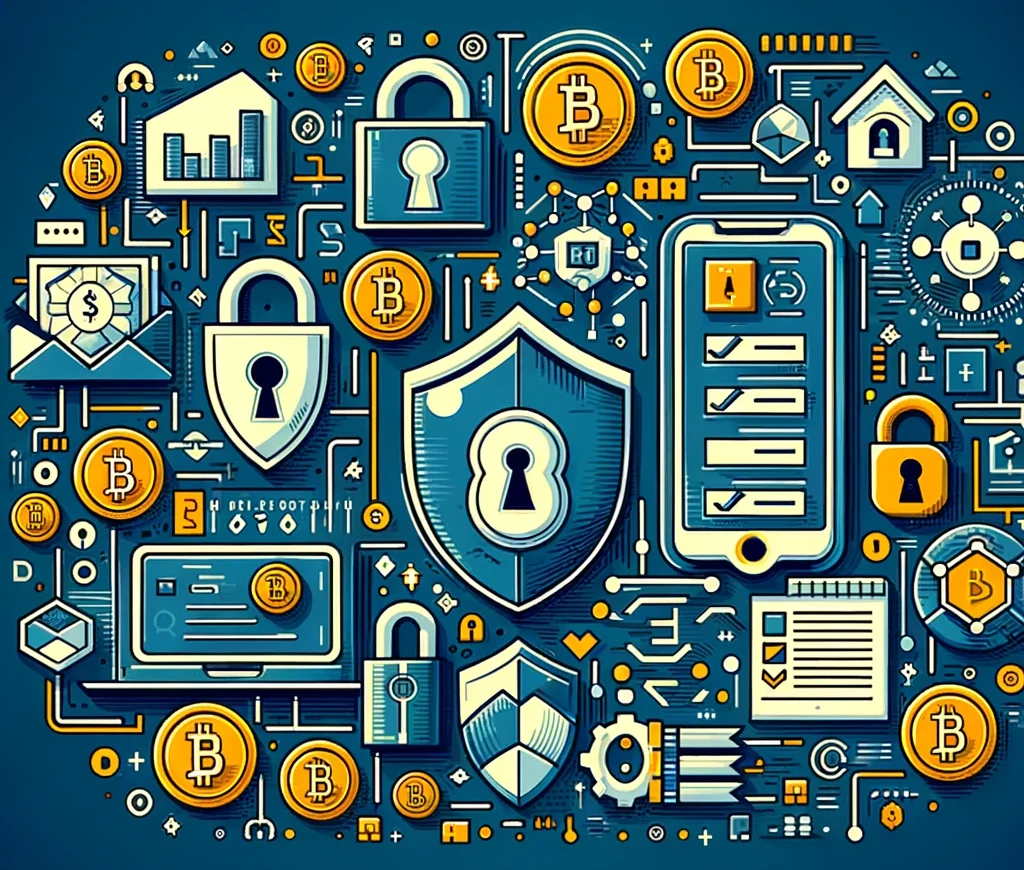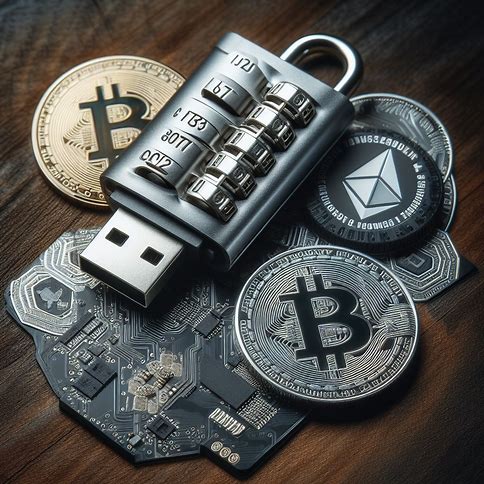Securing personal information has become a major source of concern for investors who use cryptocurrency exchanges with the increasing incidence of cyber threats and crypto exchange hacks. Here are ways to secure your personal information on cryptocurrency exchanges.
1. Understand Exchange Security Fundamentals
To better protect your privacy and personal information, you need to first understand the security architecture of cryptocurrency exchanges. These platforms, where digital currencies are bought, sold and stored, are prime targets for cybercriminals. So a strong understanding of the security measures employed by an exchange (for example, Binance), including encryption protocols, two-factor authentication (2FA) and cold storage options, is important.
Understanding the encryption protocols used by exchanges can provide users with insights into the level of security protecting their data. Look for exchanges that employ advanced encryption standards, such as AES-256, for data at rest and TLS (Transport Layer Security) for data in transit. Users should also inquire about the exchange’s policies on encryption key management and whether they implement regular security audits.
2. Two-Factor Authentication
Two-factor authentication (2FA) adds an additional layer of security beyond the traditional username and password.2FA significantly reduces the risk of unauthorized access to a user’s account by requiring a second form of verification, typically through a mobile device or biometric data. You should enable 2FA on all your exchange accounts without exception.
Also note that while enabling 2FA is a good starting point, you should opt for more secure 2FA methods, such as hardware tokens or biometric verification, over SMS-based 2FA, which can be vulnerable to SIM swapping attacks. Additionally, consider using dedicated authentication apps like Google Authenticator or Authy, which provide a more secure mechanism for 2FA codes.
3. Secure Internet Practices
The security of personal information also depends on secure internet practices. Ensure your internet connection is secure and private, especially when accessing your exchange accounts. Public Wi-Fi networks are notoriously insecure and should be avoided for financial transactions. Using a good virtual private network (VPN) can give you an added layer of security by encrypting internet traffic.
Beyond avoiding public Wi-Fi, ensure your home networks are secure by using strong, unique passwords for your Wi-Fi networks and router admin panels. Also, regularly updating router firmware and disabling WPS (Wi-Fi Protected Setup) can enhance security.
4. Phishing Awareness and Prevention
Phishing attacks, where cybercriminals attempt to trick individuals into revealing sensitive information, happen every year in the crypto space. You must be vigilant and skeptical of unsolicited communications, especially those urging immediate action or requesting login details.
To further protect against phishing, use browser extensions that identify and block known phishing sites and suspicious links. Train yourself to scrutinize URLs and email senders and verify the authenticity of messages through official channels, so you can significantly reduce the risk of falling victim to these attacks.
5. Regular Software Updates
Keeping software up-to-date is a fundamental but often overlooked aspect of cybersecurity. Regular updates for operating systems, browsers and security software contain some solutions for security vulnerabilities. Enable automatic updates where possible to ensure you benefit from the latest security enhancements.
In addition to keeping operating systems and browsers updated, you should also maintain the security of all software interacting with cryptocurrency transactions, including wallet software and other blockchain-related applications. Use reputable antivirus and anti-malware solutions and configure them to perform regular scans and real-time protection. Be very careful of the DEXs and DApps you visit and connect to.
Related: A Complete Guide to Protecting Your Cryptocurrency Wallet
6. Use Strong and Unique Passwords
When it comes to cryptocurrency account security, the strength and uniqueness of passwords are highly important. Simple or reused passwords are easily compromised; instead, use complex passwords that combine letters, numbers and symbols, and use a reputable password manager to keep track of them.
7. Learn About and Use Cold Storage
Used by millions of crypto investors, cold storage refers to keeping a cryptocurrency wallet completely offline, which protects it from online hacking attempts. For substantial holdings, consider transferring a portion of your assets to cold storage solutions, such as hardware wallets, to minimize risk.
If you’re considering cold storage, note that hardware wallets, while secure, must be purchased from reputable suppliers to avoid tampered devices. Paper wallets (another form of cold storage) should be generated offline and stored securely. Also securely document the recovery process for these cold storage solutions, such as keeping backups of recovery phrases in secure locations.
8. Regular monitoring and auditing
Active monitoring of exchange accounts and transaction histories helps you quickly identify and respond to any unauthorized activity. Setting up alerts for account logins, transactions and other significant events can provide timely notifications of potential security breaches.
Also conduct regular audits, including reviewing the access permissions of connected applications and the activity logs of your exchange accounts.
9. Educate Yourself about Security Trends
Engaging with community forums, attending webinars and following reputable cybersecurity news sources can keep you up-to-date on the latest security developments and threats in the cryptocurrency space. Staying informed about the latest security tools and threats will help you safeguard your personal information and assets more effectively.
10. Legal and Regulatory Compliance
Understand the legal and regulatory framework surrounding cryptocurrency exchanges in your country of residence because there’s no international law supporting or against the trade and use of cryptocurrencies, so you need to do your own research and find out the legal standards of cryptocurrency in your country.
Staying informed about the regulatory environment not only ensures compliance but also provides you with knowledge of your rights (if you live in a country like the USA where crypto is regulated) and the security standards exchanges should meet.
Key Takeaways
1. Robust Authentication: Use strong, unique passwords and enhance two-factor authentication (2FA) with hardware tokens or authenticator apps to secure exchange accounts.
2. Secure Connectivity: Use a secure and private internet connection for accessing exchange platforms; as much as possible, avoid public Wi-Fi; and consider a good VPN for an added layer of security.
3. Watchout for Phishing Attempts: Stay alert to phishing attempts by scrutinizing emails and messages, using browser extensions to block suspicious sites and verifying communication through official channels.
4. Software Integrity: Keep all related software, including operating systems, browsers, wallet applications and security tools, updated to protect against vulnerabilities.
5. Cold Storage: For significant cryptocurrency holdings, consider using cold storage solutions like hardware wallets or paper wallets to minimize exposure to online threats.
6. Regular Audits: Perform regular audits of account activities, review security settings, and revoke unnecessary access permissions to maintain a secure environment.
7. Learn about the latest security trends and threats: Make sure you’re up-to-date on the latest security trends, threats, and best practices in the cryptocurrency space to adapt and enhance security measures accordingly.
8. Legal Compliance: Learn about and comply with the regulatory framework governing cryptocurrency exchanges in your country, ensuring recourse in case of disputes or security breaches.
Frequently Asked Questions (FAQs)
1. Why is two-factor authentication (2FA)important?
Two-factor authentication (2FA) is a security process that requires two different forms of identification to access an account. It’s important because it adds an extra layer of security, making it significantly harder for unauthorized users to gain access to your accounts.
2. How can I protect myself from phishing attacks?
Protect yourself by being skeptical of unsolicited communications, especially those asking for personal or financial information. Use email filters, security software and browser extensions to block phishing sites. Always verify the authenticity of messages through official channels.
3. What is cold storage, and when should I use it?
Cold storage refers to keeping a cryptocurrency wallet completely offline, which protects it from online hacking attempts. It’s recommended for storing large amounts of cryptocurrency that you don’t need frequent access to.
4. How often should I update my software, and why?
Regularly, as updates often contain security fixes for newly discovered vulnerabilities. Enabling automatic updates ensures you’re always protected with the latest security enhancements in software.
5. What should I do if I suspect a security breach in my exchange account?
Immediately change your account passwords, enable or reset two-factor authentication and contact the exchange’s support team to report the suspected breach. Review your account’s activity log for any unauthorized transactions or changes.










